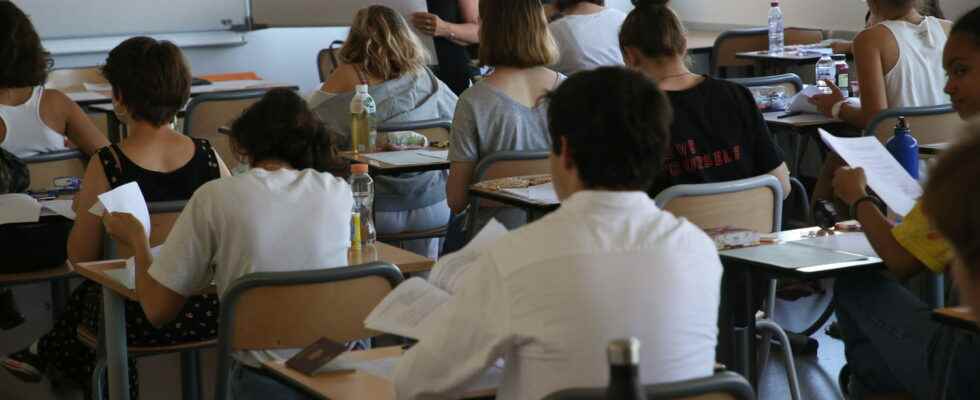HISTORY-GEO TEST. Candidates for the 2022 baccalaureate have already passed the history-geo specialty test in French Polynesia. A look at the fallen topics is a good way for metropolitan high school students to know what to expect on exam day.
The high school students of French Polynesia have taken the specialty tests for the 2022 baccalaureate, including that of history-geography! A godsend for candidates from mainland France who are still in the process of review. Each year, the subjects that fell during the tests in the Polynesian archipelago become very practical annals for reorganizing your revisions but above all for having a precise idea of what the test will be like. In 2022, these subjects were even more anticipated because the written specialty tests being organized for the first time, candidates are apprehensive of the exam. As promised by the Ministry of National Education, all the specialty tests must offer the high school students assessed several subjects and the exams in French Polynesia have respected this arrangement. For the history-geography specialty test in French Polynesia, the candidates had the choice between two dissertation subjects and a study of documents. Now public (and specified in this article), the first subjects of the baccalaureate are the perfect opportunity to practice a few days before the test scheduled for Wednesday May 11 or Thursday May 12 in mainland France.
What are the history-geo subjects of the 2022 baccalaureate that fell in French Polynesia?
In French Polynesia, the history-geography specialty test took place a week ahead of the metropolitan exam schedule. Two papers were distributed to applicants, a precaution often taken to avoid cheating, and each copy offered high school students two essays and a paper study, each on different topics from the history-geography curriculum. Of the three exercises, only one had to be carried out by the candidates.
Subject 1:
- Dissertation: States and control of the seas and oceans: challenges, competition and cooperation.
- Dissertation: Do US policies at different scales, since the 19th century, reflect major environmental issues?
- Study of documents: Does Clausewitzian thought allow us to understand the conflicts of the beginning of the 21st century? To answer the problem, the candidates had available the text War according to Clausewitzbased on the posthumous work of Carl von Clausewitz, Of the war from 1832 and the article by Bakary Sambe dated 2018, Changes in jihadism, Africa faced with asymmetric warfare and the imperative of prevention.
Subject 2:
- Dissertation: Judging genocides and mass crimes since 1945.
- Dissertation: The conquest of space, an ideological and power issue.
- Study of documents: Show the stages of the action of human beings on their environment since the Neolithic, by critically analyzing the documents, comparing them and relying on your knowledge. Candidates could rely on the article by François Gemenne and Marine Denis, The Anthropocene, a planetary disaster, appeared in the review Questions Internationales in 2017 and the analysis of Jean-Noel Biraben, The evolution of the number of menpublished in Populations and Societies in October 2003.
What are the possible subjects for the history-geography specialty test?
Of the six themes that make up the history-geography program only four are likely to fall on the day of the exam. The Ministry of National Education has classified the subjects of each subject into three categories: the subjects likely to be assessed during the even years, those during the odd years and finally the most important subjects which may fall in each session of the baccalaureate. Automatically, two subjects can be slightly excluded from the candidates’ revisions, but they should not be completely ignored because the subjects can be cross-cutting, certain knowledge could help the candidates in front of their copy. Discover the four themes that can be the subject of the history-geo test:
- “New areas of conquest”
- “Making war, making peace: forms of conflict and modes of resolution”
- “History and Memories
- “The environment, between exploitation and protection: a global issue”
The history-geography specialty test is divided into two parts. The first is a dissertation and the second a document study, it can be a photo, a text or a map. The two exercises are compulsory for all candidates, but the ministry has provided for an adjustment: a doubling of the subject of the dissertation. For the first part of the test, the candidate will therefore have the choice between two different dissertation subjects, each relating to a theme of the program. The document study will cover another theme studied during the year so that three themes out of the four probable ones are addressed, which means that no subject should be neglected during the revisions. While this appears to be a greater dose of work, this instruction is primarily intended to offer candidates the best chance of success.7
When is the 2022 baccalaureate history-geo exam scheduled?
The history-geography test was normally to take place like all the other specialty education exams in March, but the Ministry of National Education has decided to postpone the series of tests to May to prevent certain candidates from be penalized by the consequences of the Covid-19 epidemic on the school system. It is therefore between May 11 and May 13 that the tests are held, and that of history-geo should more precisely be organized on Wednesday May 11 or Thursday May 12 from 2 p.m. to 6 p.m. according to the first details of theStudent.
When will the results of the history-geography test be published?
A priori, the results of the history-geography specialty test will be available on July 5, at the same time as the results of the other tests (French, philosophy and major oral). The fact that specialty courses are evaluated one month earlier does not affect the publication of the results.
